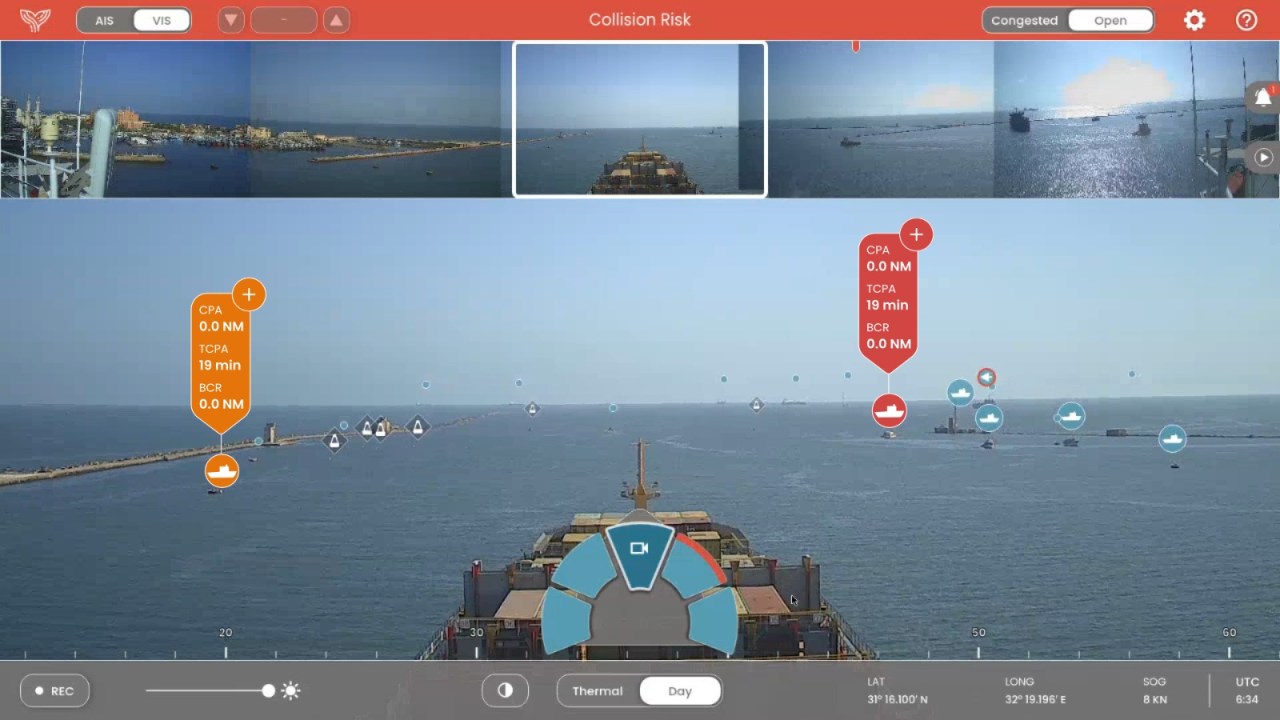The world of transportation is undergoing remarkable transformations, with autonomous technologies proving to be game-changers. While autonomous driving has made significant strides in roadside applications, a new frontier is quietly emerging across the vast oceans – autonomous shipping. Leading this movement is the innovative startup Orca AI, which recently secured $23 million in funding, setting the stage for a revolution in maritime navigation.
The Surge of Autonomous Shipping
The autonomous navigation market is burgeoning, predicted to grow from $4.46 billion in 2023 to $5.33 billion in 2024. This impressive growth signifies a broader shift within the global shipping sector, which is ripe for innovation, especially in the wake of increasing demands for efficiency and sustainability.
Founded by Israeli naval technology pioneers, Yarden Gross and Dor Raviv, Orca AI has positioned itself at the forefront of this shift with its groundbreaking AI-based navigation technology. Their platform has already accomplished the unprecedented feat of autonomously navigating a commercial ship through congested waters, asserting Orca’s role as a leader in this emerging space.
Funding and Expansion Plans
With the recent infusion of $23 million led by OCV Partners and MizMaa Ventures, Orca AI’s total investment has reached nearly $40 million. This influx of capital, classified as somewhere between Series A and Series B funding, is earmarked for expanding the company’s technology and engineering capabilities, as well as scaling its operations. Such strategic investments will not only enhance product offerings but also foster innovation driven by the extensive data collected from clients worldwide.
Innovative Technologies Driving Efficiency
Orca AI’s sophisticated navigation system processes multiple sources of visual information to maintain accurate course control while optimizing crew responsibilities. This allows crews to focus on critical aspects of a voyage, such as monitoring potential threats from piracy or drone attacks. Notably, during a trial in 2023, Orca reported a remarkable reduction of close encounters by 33% and crossing events by 40%, demonstrating the effectiveness of their technology over 15 million nautical miles.
- **Fuel Savings**: Orca’s technology can save vessels between $100,000 to $300,000 annually on fuel, reflecting a 3% to 5% reduction in consumption.
- **Sustainability Impact**: Last year alone, their system contributed to a reduction of 72,716 tons of CO2 emissions across a fleet of 1,000 ships, highlighting Orca’s commitment to sustainable maritime practices.
Addressing Industry Challenges
The maritime industry operates under considerable pressures, including harsh working conditions and geopolitical instability affecting shipping routes. As these challenges mount, the push for automation in the sector is becoming increasingly apparent, marking a pivotal point in the industry. Gross emphasizes this need for technological intervention: “We’re building a platform that serves the ship itself,” indicating a vision for a future where vessels will increasingly operate with minimal human intervention.
The platform not only collects crucial operational data but transforms fleet management. Investors and maritime experts anticipate that this technology could lead to fleets operated in a semi-autonomous manner, optimizing everything from operational efficiency to safety measures.
Looking Ahead: A Shift in Maritime Transport
As Orca AI collaborates with prestigious shipping companies such as MSC, NYK, Maersk, and Seaspan, the company’s growth strategy is solidly in place. The infusion of funds will facilitate further research and product development, ultimately pushing the boundaries of what autonomous shipping can achieve.
With the increasing acknowledgment of the importance of maritime transport in global trade—over 80% of the volume of international goods is shipped by sea—the opportunities for autonomous shipping systems like Orca AI’s are expansive. Industry leaders, including OCV’s Hemi Zucker, advocate for these advancements, underscoring the potential transformative impact on the worldwide shipping market valued at an astonishing $2 trillion.
Conclusion
Orca AI’s recent funding underscores a critical transformation in maritime shipping, where the integration of AI-driven technologies can redefine traditional operations. As the company forges ahead with its innovative initiatives, the future looks promising not only for Orca but also for the maritime industry as a whole. With greater efficiency, enhanced safety, and significant environmental benefits, the navigational landscape of the oceans is set for groundbreaking change.
At **[fxis.ai](https://fxis.ai)**, we believe that such advancements are crucial for the future of AI, as they enable more comprehensive and effective solutions. Our team is continually exploring new methodologies to push the envelope in artificial intelligence, ensuring that our clients benefit from the latest technological innovations.
For more insights, updates, or to collaborate on AI development projects, stay connected with **[fxis.ai](https://fxis.ai)**.

